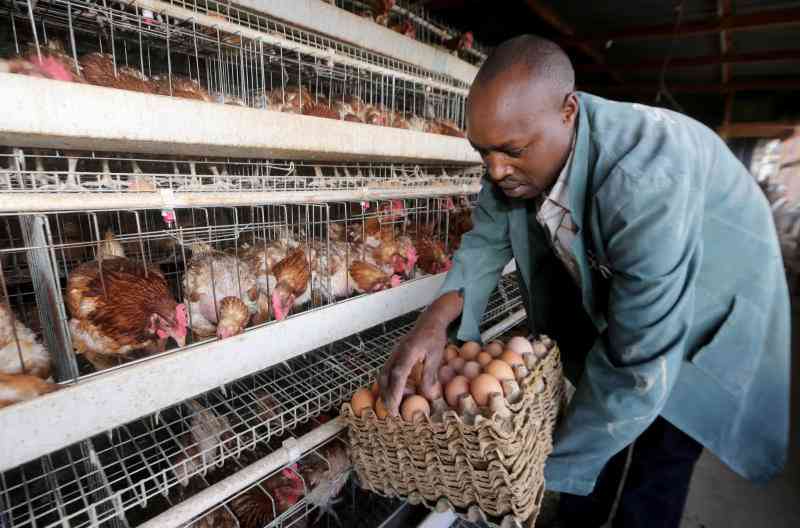As we mark the International Day of Forests today, it’s a good opportunity to reflect on the need for Africa to scale up restoration of degraded forest lands in line with the Africa Landscape Restoration Initiative (AFR100).
This day ties in well with ‘the Africa Pledge - Nairobi Call for Action on the Conservation and Preservation of Forests in Africa’ that I signed last week at the One Planet Summit in Nairobi together with Heads of State, including President Uhuru Kenyatta and his French counterpart Emmanuel Macron, Government Ministers, Civil Society Organisations, Research and Academic Institutions, Private Sector and local communities.
In Africa, climate-related risks and hazards across critical sectors —energy, food, and water —are likely to affect increasing numbers of people and regions with devastating consequences. The report suggests that the risks could be minimised by scaling up and accelerating far-reaching, multilevel and cross-sectoral climate mitigation and adaptation.
Tropical forests alone can deliver at least 30 per cent of mitigation action needed to prevent catastrophic climate change. The IPCC reports that by 2030, up to a third of its annual land-based emissions reduction targets could be achieved at a cost of $20 or less per carbon tonne.
Halting tropical deforestation and degradation and allowing tropical forests to continue sequestering carbon and regrowing at current rates is key. Research by ecologist Thomas Crowther and colleagues at ETH Zurich, a Swiss university combining forest inventory data from 1.2 million locations around the world as well as satellite images, estimates that Planting 1.2 trillion trees could cancel out a decade of CO2 emissions.
African forest
There are already 400 gigatons [of CO2 stored] now in 3 trillion trees. If we were to scale that up by another trillion trees– at least 10 years of anthropogenic emissions will be completely wiped out. That’s why I am excited by the commitments by African governments to natural climate solutions through various initiatives. For instance, 29 countries in Africa have signed the African Forest Landscape Restoration Initiative(AFR100) which seeks to restore at least 111 million hectares of degraded and deforested land in sub-Saharan Africa by 2030.
Similarly, the Great Green Wall of the Sahara and the Sahel brings together more than 20 countries to create a great mosaic of green and productive landscapes across the Sahel, North Africa and the Horn region.
Substantial progress has been made in implementing these commitments on the ground. However, given the urgency at hand, it is time to scale up implementation. Private sector and civil society launched a new program to support scaling up implementation of the AFR100 in the following ways:
Improve livelihoods
First, by mapping of priority areas for restoration/reforestation based on their current stores of carbon stock and the potential amount of greenhouse gas emissions that can be avoided if the area is protected. This will include providing countries with spatial tools for restoration planning to optimize site selection, tradeoff management, and ecosystem service valuation.
Second, by Identifying the most effective and efficient restoration activities for a given area, and supporting actual implementation on the ground. Governments expressed a desire for these activities to also improve livelihoods and build resilience of smallholder farmers and their families, especially women and youth.
Third, by putting in place mechanisms for monitoring and tracking restoration efforts, including their contributions towards regional and global targets.
Fourth, by strengthening ability and readiness of countries to effectively leverage innovative and blended finance. This includes developing bankable projects that can attract private sector investment.
Finally, the programme will facilitate shared learning at landscape level and through national and regional platforms including the Global Landscape Forum (GLF) which is the largest platform for connecting sharing, learning and acting on restoration. Conservation International and GEA are charter members of the GLF. We look forward to working with all the other AFR100 technical partners and participating countries to fulfil their pledges by 2030!
Stay informed. Subscribe to our newsletter
Ms Ruhweza is Conservation International’s Vice President for Programs and Partnerships in [email protected]
 The Standard Group Plc is a
multi-media organization with investments in media platforms spanning newspaper
print operations, television, radio broadcasting, digital and online services. The
Standard Group is recognized as a leading multi-media house in Kenya with a key
influence in matters of national and international interest.
The Standard Group Plc is a
multi-media organization with investments in media platforms spanning newspaper
print operations, television, radio broadcasting, digital and online services. The
Standard Group is recognized as a leading multi-media house in Kenya with a key
influence in matters of national and international interest.
 The Standard Group Plc is a
multi-media organization with investments in media platforms spanning newspaper
print operations, television, radio broadcasting, digital and online services. The
Standard Group is recognized as a leading multi-media house in Kenya with a key
influence in matters of national and international interest.
The Standard Group Plc is a
multi-media organization with investments in media platforms spanning newspaper
print operations, television, radio broadcasting, digital and online services. The
Standard Group is recognized as a leading multi-media house in Kenya with a key
influence in matters of national and international interest.





